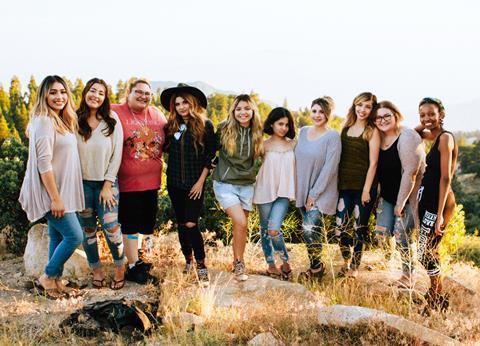In her own unique way, Veronica Zundel celebrates women, but anguishes over the unequal way we can be treated

Last autumn I went on a healing retreat at a beautiful 17th-century manor house in Sussex. As so often is the case with these events, both leaders and all the attenders were women. In a closing session, we were invited to give thanks for any blessings we had received in the last four days. When it came to my turn, I thanked God for “immersing me in a warm bath of women”.
It raised a laugh, but also smiles of recognition. There is something in a gathering of well-intentioned women that you just don’t get in a mixed group, let alone a group of men. Maybe it’s because I went to a girls’ secondary school that I feel especially safe in such a context (though I was keen enough to get to know boys from the school next door!).
Of course women can be competitive or even vindictive (just stand at any school gate for a while). We are sinners, and have our own special female ways of sinning. The verb ‘bitching’ did not arise out of nowhere – although I have certainly heard men doing it too. Nonetheless, women’s conversations and relationships, it seems to me, tend to be much more cooperative and collaborative rather than adversarial.
We are more interested in building someone up than in tearing them down. There’s no way of telling whether this is part of our ‘feminine’ nature or something learned from our culture, but it is definitely my experience – and it is confirmed by a book I reviewed recently on the role of women peacebuilders in situations of conflict around the world. Men in a situation of confrontation seem much more willing to listen to a maternal figure – perhaps because in their sibling relations, mother’s word was final.
Our unique perspective
If nothing else, women’s experience of the world is significantly different to that of men, and since we are rather more than 50 per cent of the world’s population, wouldn’t it benefit everyone to listen to our perspective? Our own Bible interpreter Elaine Storkey once spoke at a conference where she had to address, and lead discussion with, a group of men (possibly ministers) and, separately, do the same with their wives.
She met the wives first, and then the husbands, and then observed that the men were happy to talk in terms of generalities and ‘rules’, while the women spoke honestly of their own personal experiences. When she told the men this, they pleaded: “Would you please tell us what our wives said?” Elaine was also an editor of the Women’s New Testament, which comments on the Bible from a uniquely female perspective, and gives us insights into scripture that few men would notice or think important.
Many years ago I was speaking with a black theologian from apartheid South Africa. He declared to me that I could not possibly know what it was like to be treated from birth as a second-class citizen who could never aspire to the life the ‘masters’ lived. I replied that of course I knew what it was like, because I was a woman. He simply laughed at me, but I still stand by my point.
Social divisions
A bishop has just been appointed in the Church of England who does not recognise the ordination of women to the priesthood. Why? Apparently because of one disputed verse in an epistle, and contrary to all the other evidence in the New Testament that Jesus affirmed women, gave them a voice, possibly even had his mind changed by one, and that Paul appointed women leaders in the fledgling church. This bishop will presumably refuse to accept communion from female ministers of whom he is in pastoral charge, let alone recognise the authority of any fellow bishop who has the ‘wrong’ genitals and hormones.
Do you sense my blood boiling? Darn right you do. And I don’t think that makes me any less feminine. Women feel, and are entitled to, the same range of emotions as men. It’s just that the emotions society allows us to express are different from those allocated to men: we are allowed to weep and feel incapable, while men are encouraged to be forthright and confident. An angry man is a prophet; an angry woman is a harpy or harridan.
But since this social division of emotions exists, shouldn’t we perhaps celebrate and take advantage of it while we have it? If women have been trained from birth to be gentle, concilliatory and caring, let’s not regard these as second-class gifts but affirm and nourish them. Because, sometimes, a warm bath of women is just what one needs.
































1 Reader's comment